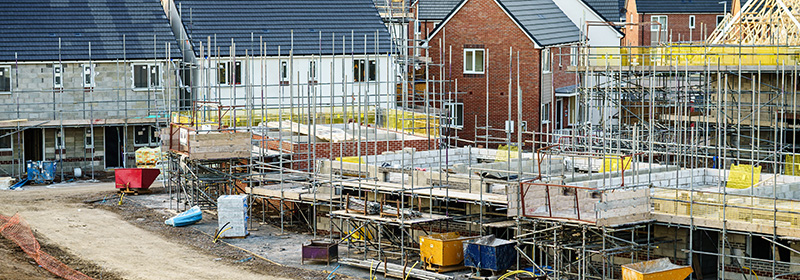Construction delays have a cost, which very easily leads to one party blaming the other party for damages for the losses as a result.
The Implications of Construction Delays
The liability and burden of proof, where Liquidated and Ascertained Damages (LADs) are included in the contract for any construction delay is on the party carrying out the work, i.e. the Contractor or Subcontractor. The Employer or Payer will be able to deduct LADs from the Contractor or Subcontractor’s account by default in the absence any evidentially proved delay submission and an Extension of Time to the Completion Date has not been given.
Dealing with delays in a properly written adequate construction contract, will include a start and completion date, a liquidated damages clause, extension of time mechanism and a loss and expense provision. If there is no contract agreed or the contract is absent these types of provisions and clauses, it can get complicated in that liability and damages become more difficult to prove.
There are 3 scenarios and effects of delays where the contract is adequate:
-
The Contractor or Subcontractor causes the delay - In the absence of a valid Extension of Time entitlement they have to pay Liquidated or Unliquidated Damages to the paying party.
-
The Employer / Payer causes the delay – The Employer will have to give an Extension of Time due to his liability and the Contractor or Subcontractor will be entitled to claim their actual losses and expenses arising out of the delay.
-
Both parties are to blame or there is no fault by either party for the delay – No liability and thus no damages nor losses can be claimed by either party.
Proving delays is normally best served by a formal DELAY ANALYSIS submission.
The Remedy – An ARBICON DELAY ANALYSIS
Delays are common in construction contracts and the exact cause or causes are often difficult to pinpoint against the critical path of the works and thus specialist construction delay Experts such as Arbicon with decades of experience, are essential to forensically assess the facts, law, causes, extent and contract provisions to conclude on the liability for the delays in a forensic report and Extension of Time claim prepared to “adjudication standard” or for arbitration or court proceedings.
Arbicon can then represent you in adjudication for a speedy resolution of the Extension of Time claim. Arbicon can also quantify and prosecute either at the same time or later claims for damages or losses and expenses as a result of the delays.
Arbicon can help you manage delays and risks as they happen or make a claim retrospectively. Our support often leads to early settlement or resolution through our ability to put pressure on the other side and negotiate practical solutions to complex issues commercially.
Below we have prepared some common questions to help you understand how we can support you in your matter relating to delays and delay analysis.
Construction Delay Analysis – Frequently Asked Questions
What is Construction Delay Analysis?
Construction delay analysis is the process of identifying the reasons for delays on a construction project, assessing their impact on the timeline, and determining who is responsible. It helps to establish entitlement to Extensions of Time and assess potential liability for Liquidated Damages or Unliquidated Damages as appropriate or alternatively liability of the payer for time related losses and expenses.
The Society for Construction Law (SCL) delay and disruption protocol for construction contracts is a good reference point for the scope of what types of delays, claims and objectives of delay analysis. Read here:
https://www.scl.org.uk/sites/default/files/documents/SCL_Delay_Protocol_2nd_Edition_Final.pdf
There is no hard and fast rule on what methodology is selected, indeed an Expert can divert from what is industry-accepted. What is important is the method and proof delivers the common-sense answer to a tribunal or court.
The industry has six standard methods of delay analysis which are as set out in the following table
Why do I need a Delay Analysis?
Delays can cost you time, money, and reputation. Whether you're a contractor seeking an extension of time or an employer disputing a claim, a delay analysis provides you with:
-
Clear evidence of delay causes
-
Determination of liability
-
Protection against financial risk
-
Support for or defence against claims relating to delay, including associated claims for loss and expense or liquidated damages
How do you determine the cause of delay?
We conduct a detailed forensic review of the project:
-
Programmes and schedules
-
Progress records and site diaries
-
Contract terms
-
Correspondence and meeting notes
-
Valuations
-
Anything else that is factually relevant
Using industry-accepted methodologies we assess what caused the delay and when whilst also assessing the effect of that delay on the contract period and what additional time if any should be granted.
What is an Extension of Time?
An Extension of Time is an adjustment to the project completion date to account for delays. If granted, it will protect the party carrying out the work from liability for Liquidated Damages or Unliquidated damages for the respective delay period.
Am I entitled to an Extension of Time?
You may be entitled to additional time if the delay was caused by a “Relevant Event” say under your JCT contract, a “Compensation Event” under an NEC contract, or such other event as may be described in a bespoke contract form. Common examples include:
-
Adverse weather
-
Late design information
-
Variations instructed by the employer
-
Delays by other contractors or statutory bodies
We assess your contract and delay events to advise whether additional time is justified and help manage the application process.
What if both parties contributed to the delay?
This is known as a concurrent delay. We analyse each party’s actions and determine how this may affect your entitlement to time and/or cost. Our expert reports can help defend or challenge claims based on concurrent responsibility.
How can Delay Analysis support a dispute?
Our reports serve as robust evidence in negotiations, adjudications, arbitrations, and court proceedings. We clearly present:
-
Delay causation
-
Responsibility
-
Programme impact
-
Contractual entitlement
This robustly demonstrates your position and improves the likelihood of an accurate outcome.
What is the difference between Delay Claims and Loss & Expense claims?
-
A delay claim relates to time, seeking an Extension of Time to avoid Liquidated or Unliquidated Damages.
-
A loss and expense claim relates to actual costs incurred, seeking recovery of additional expenditure (labour, plant, overheads) caused by delays or disruption.
We handle both types of claim, ensuring your rights to both time and money are fully explored and supported.
What happens if there is no contract nor terms relating to completion, extension of time, liquidated damages nor loss and expense?
In such circumstances, time will be “at large”, which means completion of works in a reasonable time. That could be a lot longer than anticipated. Common Law applies and claims for additional time related costs and unliquidated damages are difficult to identify. The matter becomes an argument with less certainty but not impossible.
What can I do to help myself manage delay risk?
Delays and time assessments can be complex so consider what impacts on time. First and foremost make sure the contract is right at the start so delays are managed and review any proposed amendments such as clauses stating an action is a “condition precedent” to entitlement. Basically, you need records, records, records and in consideration of these manage the risks by consideration of factors by example as follows:
-
Mitigation of Delays
-
Critical Paths
-
Programmes
-
Notices of delay
-
Completion and Non-Completion Notices
-
Common Law RIGHTS
-
Time at large
-
Float
-
Disruption
-
Design information late
-
Relevant events
-
Impact of third parties on the works
-
Variations and instructions
-
Antiquities
-
Condition precedents
-
Milestones
-
Key dates
-
Sectional completions
-
Subcontractors and suppliers
-
Acceleration
Good records will allow us to compile a claim with substance so these are essential.
What does your Construction Delay Analysis service include?
We can provide all, or a combination of, the following services tailored to suit your requirements:
-
Identification of delay causes
-
Assessment of liability
-
Extension of time entitlement advice
-
Preparation of detailed analysis reports
-
Submission of claims
-
Support and representation in dispute resolution including adjudication
We also offer as Chartered Quantity Surveyors independent CPR35 expert evidence witness reports for use in court litigation.
Why choose Arbicon?
-
Proven Expertise – Decades of experience in construction law and dispute resolution
-
Evidence-Based Reports – Clear, structured, and compliant with industry standards
-
Tailored Approach – Advice specific to your contract, project, and commercial goals
-
Trusted by the Industry – We support contractors, employers, and solicitors nationwide
-
Proven Success – Link to case studies
How do we get started?

